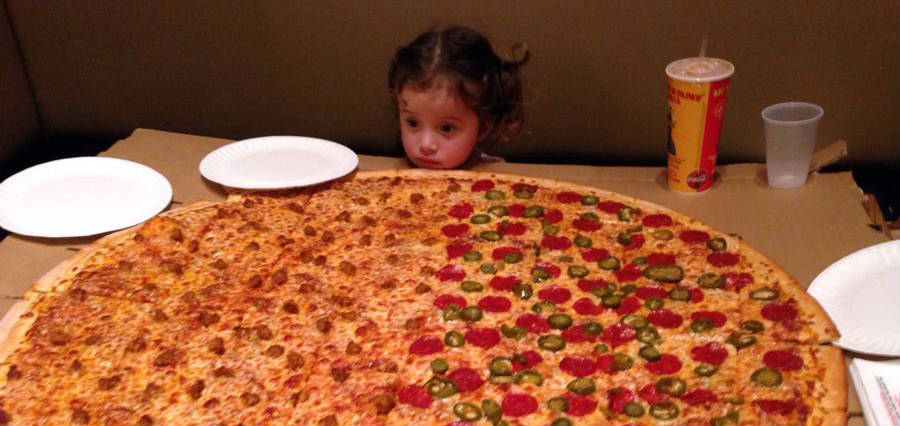
Is Healthy Eating All It Takes For Lasting Weightloss?
Whether you’ve been on and off diets all your life or it’s your first try, you’ve probably gotten far enough to know that weight loss and healthy eating plans are directly related, but our society sure doesn’t make it easy.
Fast food and enormous portions are a part of how some of us grew up.
Fighting the food choices and portion sizes that were taught in childhood may be quite challenging for some.

Food is a coping mechanism for many people. Some more than others.
We all get enjoyment and “feel good” responses from eating certain comforting foods. But finding that balance between an occasional treat and an unhealthy habit is key.
Eating an enjoyable meal or favorite unhealthy food is something that should be an exception and not the rule.
Does it just come down to healthy eating?
What makes matters even more complicated is the abundance of fad and miracle diets that promise what you want to hear but just don’t work.
If you want to lose weight and keep it off, you’re going to have to do it the boring way with eating right and exercise.
The weight didn’t go on easily… So it’s going to take time and dedication to get it off with lasting results. It all comes down to diet and physical activity.
And this ensures that you’re changing your habits and lifestyle which will prevent the weight from returning as it would with any fad diets or quick fixes.
It’s all about retraining your brain into healthy habits and healthy choices.
If you are overweight, losing those extra pounds not only makes you look and feel better, it contributes to your overall health. People who are not overweight are less at risk for serious health problems, like heart disease and diabetes.

Improve your overall health by just losing excess pounds. Of course, it goes deeper than that, but having a healthy body weight and waist circumference is the first step.
What are aspects of a healthy diet?
Firstly, a word or two on fad diets: these all sound exciting when you first hear them and their supposed features usually include “overnight weight loss” and “no need to exercise” or similar claims, but these types of diets don’t work precisely because they are impossible to maintain.
They often restrict certain food groups that should be part of a healthy diet. When your body doesn’t get these foods, it goes into deprivation mode and creates imbalances.
Changing your eating habits must consist of the perfect balance of all food groups. Withholding any food group for an extended period of time will never result in long-term success. A reduction of certain food groups is feasible.
But the absolute exclusion of certain food groups will not last long term. And our bodies require nutrients from all food groups to maintain certain vitamins and minerals as well as fat and fuel burning processes.
Is there a quick fix?
Going completely low-carb is never going to be lasting or successful. The majority of the weight that’s lost will return once normal eating has resumed because portion control or a consciousness of intake reduction was not achieved, complete elimination only causes eventual relapse to occur.
What happens with fad diets is that you lose a few pounds right away pretty quickly, but it won’t take too long before you plateau and eventually even start to gain the weight back.
The only real alternative to these types of diets is to eat healthy foods and exercise regularly.
This doesn’t mean that you have to completely cut out the unhealthy foods that you love, as a short-term stricter diet might suggest.
It means making healthy choices and then eating the “bad stuff” in moderation.
Moderation is the key. For instance, during a vacation period, a little relaxation in your eating plan could & should occur. Life is meant to be enjoyed, relaxing usual habits within reason, it’s only human. Eating a restricted diet while on vacation is just bad for your psyche. You have to allow yourself to live and be human and then new eating habits will become a new lifestyle.
Weight loss and healthy eating plans go hand in hand. It’s all about maintaining proper eating habits, so that an occasional splurge won’t set you back at step one.
Diets that are too severe make you crave the bad stuff even more, so it’s even harder to stick with them. There are some healthy weight loss plans that do work.
What does a great weight loss plan consist of?
These usually incorporate the mindset that weight loss is not some temporary fix but instead, a newer and better way of eating which you will adhere to permanently.
They also promote some sort of support or buddy system which encourages you and holds you accountable. Good plans also allow for flexibility and individuality – everyone is different and it might take you a while to figure out exactly what works best for you.
Until then, commit to a plan and stick to it. Another important criteria for a good weight loss program is that it emphasizes that losing weight slowly is the way to go.

Losing weight too fast can lead to you gaining it back, plus some even faster. It also does a number on your nervous system which can make you feel sluggish and ill.
While short-term goals are good incentives, make sure that they fit within “the losing weight steadily” scheme of things. These are all contributors to weight loss and healthy bodies.
Bottom line.
Consistent commitment is key. Even if you falter, get back on track the very next day. One unsuccessful day does not constitute giving up altogether.
A specific way to avoid any mishaps is to perform meal planning, making sure to have a desired meal ready or planned each day. By leaving things to chance, you have a higher likelihood of falling off the wagon, due to convenience, as well as the lack of structure or planning.
The most successful way to truly attain lasting weight loss is to consciously live in a healthy and intentional way.


Leave a Reply